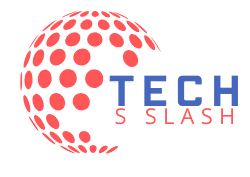It’s funny how quickly things move in the tech world. One moment, companies are just trying to get their heads around digital transformation. Next, they’re rethinking their entire business infrastructure with AI-driven ERP systems. And when we talk about Nusaker—the fictional or real company you’re envisioning here—its future seems practically stitched into this emerging fabric.
So, what does it mean when we say that AI-powered ERP is the “future” of Nusaker? Well, let’s walk through it like two colleagues chatting over coffee, not like two robots reciting a whitepaper.
First, What Even Is an AI-driven ERP system?
Let’s break this down simply. ERP stands for Enterprise Resource Planning. At its core, it’s a software platform that helps businesses manage day-to-day stuff—inventory, human resources, finance, supply chain, and more. You could call it the “central nervous system” of a company. For years, ERP systems have been pretty static. Sure, they were digital. But they required constant human input and oversight. Think of spreadsheets with a fancy interface.
Now throw in artificial intelligence—yes, the same stuff behind self-driving cars and smart assistants—and suddenly, ERP systems become smart. They don’t just record data, they understand, predict, and recommend it. It’s like upgrading from a map to GPS. More like a GPS that tells you where traffic is building before it even starts.
Why Nusaker Should Care
If you’re sitting at Nusaker’s leadership table, here’s why this isn’t just some shiny new tech buzzword—it’s a game changer.
Let’s imagine Nusaker operates in manufacturing logistics, or even digital services. These sectors rely on timing, efficiency, supply chain accuracy, and forecasting. Old-school ERP can track your shipments, sure. But AI-driven ERP can tell you where delays might happen, why a material cost is fluctuating, or how you can adjust workforce allocations to match projected sales trends.
That’s no longer reactive management. That’s a proactive business strategy. In other words: Less guesswork, more growth.
Real Talk: What Does AI Do in an ERP Anyway?
AI adds layers of intelligence to traditional ERP in several ways. Here’s a rundown that won’t bore you to sleep:
- Predictive Analytics: Based on past data, the system can forecast future demand, helping with production planning and inventory management.
- Process Automation: Things like invoice processing or employee onboarding get streamlined. Less human error, faster workflows.
- Natural Language Processing (NLP): You can ask your ERP questions like, “What were our Q1 logistics costs in Europe?” and get an answer without digging into tables.
- Anomaly Detection: Spotting fraud, errors, or irregularities that even a seasoned employee might miss.
If Nusaker wants to be ahead of the curve, these aren’t just nice-to-have features. They’re essential tools to compete.
Is AI Going to Replace Jobs at Nusaker?
Ah, the elephant in the room. The concern most people won’t say out loud at company town halls.
Here’s the truth: AI in ERP does reduce manual work, but that doesn’t mean it replaces people. Instead, it changes the kind of work people do. Your team isn’t stuck triple-checking numbers or copying data between spreadsheets. They’re analyzing insights, making strategic decisions, or handling exceptions where human judgment matters.
The jobs shift from repetitive to creative. And let’s be honest—most people would rather spend their time solving interesting problems than typing in sales figures, right?
Let’s Not Ignore the Bumps in the Road
No tech evolution is all roses. AI-powered ERP systems come with challenges. Implementing them can be costly and time-consuming. If Nusaker jumps into this without a clear plan or proper training, it might end up with frustrated employees and a lot of wasted potential.
Plus, data quality is everything. AI is only as good as the information it’s trained on. Feed it messy, incomplete data, and it’s going to make messy, incomplete suggestions. Think of it like cooking—you can’t expect a five-star meal from expired ingredients.
Then there’s the question of ethics and transparency. AI decisions shouldn’t feel like black boxes. If an AI tool recommends laying off a department or skipping a supplier, decision-makers need to understand why.
So, What’s Next for Nusaker?
If Nusaker wants to future-proof its business, it needs to think beyond “ERP as usual.” The companies that win in the next decade won’t just be using AI because it’s trendy—they’ll be using it strategically. They’ll use AI-driven ERP systems not just to run the business, but to reimagine it.
That could mean real-time budgeting where the numbers update as conditions change. It could be smart supply chains that adjust routes based on weather forecasts. Or even an HR module that helps reduce turnover by analyzing team morale trends.
And you know what? Nusaker doesn’t have to do it all at once. The beauty of modern ERP platforms—especially those backed by AI—is that they’re modular. Start with finance. Move on to logistics. Grow into HR and sales. No need for a massive overnight overhaul.
Conclusion of AI-Driven ERP Systems
At the end of the day, this isn’t just about software. It’s about how businesses like Nusaker adapt and evolve in a world that’s moving faster than ever. AI-driven ERP systems are the future—not because they’re flashy, but because they help you make better decisions, faster, and with fewer mistakes.
So if you’re sitting at your desk at Nusaker, wondering whether now’s the right time to explore this shift, the short answer? Yes. The long answer? Start small, plan well, get buy-in, and don’t be afraid to learn as you go.
Because the companies that wait to see how the future plays out? They usually don’t get a starring role in it.
Visit the homepage for the latest updates.

